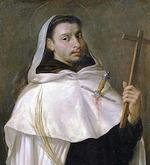Cardinals discuss continuance of Pope Francis’s initiatives
May 05, 2025
On May 3, members of the College of Cardinals met in their ninth general congregation since Pope Francis’s death. 177 of the 252 members of the College of Cardinals—including 127 of the 133 cardinal electors—were in attendance, the Vatican newspaper reported.
The Vatican newspaper reported that the 26 interventions, or brief speeches, by cardinals touched on the following topics:
The grateful remembrance of Pope Francis, the processes he initiated and the responsibility to continue and safeguard them. But also the dual task of the Church: to live and bear witness to communion within herself and to promote fraternity in the world. And again, collaboration and solidarity between the Churches, the role of the Curia in relation to the Pontiff, the service of the Church and the Bishop of Rome to peace.
Other inverntions, the newspaper continued, addressed
the value of education as a tool for transformation and hope. There was no shortage of references to the Jubilee and to the desire that the next Pope have a prophetic spirit, capable of guiding a Church that does not close in on itself, but knows how to go out and bring light to a world marked by despair. Some themes already addressed in previous days were also revisited, such as synodality and collegiality, and the focus was on the world and the attention it pays to the Church. Awareness emerged of the risk that the Church may become self-referential and lose its relevance if it does not live in the world and with the world. Also important were the references to ecumenical dialogue and mission.
131 of the 133 cardinal electors have now arrived in Rome, according to L’Osservatore Romano. An additional two potential cardinal electors—Cardinals Antonio Cañizares Llovera and John Njue—will not be taking part in the conclave because of illness.
New members of particular congregation
The apostolic constitution Universi Dominici Gregis—promulgated by Pope St. John Paul II in 1996, and modified by Pope Benedict XVI in 2007 and 2013—provides norms for the vacancy of the Apostolic See and the election of the Roman Pontiff.
The apostolic constitution entrusts more important matters to the general congregations of cardinals and quotidian affairs to a four-member particular congregation, composed of the camerlengo (chamberlain) of the Holy Roman Church and three cardinal assistants. The camerlengo is Cardinal Kevin Farrell; the three cardinal assistants—one each from the orders of cardinal bishops, cardinal priests, and cardinal deacons—are chosen by lot, according to the apostolic constitution.
During the first general congregation on April 22, Cardinals Pietro Parolin (episcopal order), Stanisław Ryłko (presbyteral order), and Fabio Baggio (diaconal order) were chosen by lot to three-day terms as cardinal assistants. New cardinal assistants were presumably chosen by lot on April 25, but Vatican News, the news agency of the Vatican’s Dicastery for Communication, did not include their names in its coverage of the general congregation that day.
On April 28, the new cardinal assistants chosen by lot were Cardinals Reinhard Marx, Luis Antonio Tagle, and Dominique Mamberti. The Vatican newspaper reported that “Marx, as coordinator of the Council for the Economy, always remains in the trio of cardinals who help the Camerlengo”—a provision not foreseen in the apostolic constitution.
On May 3, new cardinal assistants chosen by lot were “Cardinals Robert Prevost, an Augustinian, and Marcello Semeraro, while Cardinal Reinhard Marx was confirmed as coordinator of the Council for the Economy,” the Vatican newspaper reported. The wording of the report suggests that the coordinator of the Council for the Economy, like the camerlengo, has become an ex officio member of the particular congregation, a role not envisioned in Universi Dominici Gregis, as the Council for the Economy was established only in 2014.
For all current news, visit our News home page.
All comments are moderated. To lighten our editing burden, only current donors are allowed to Sound Off. If you are a current donor, log in to see the comment form; otherwise please support our work, and Sound Off!
-
Posted by: feedback -
Today 7:46 AM ET USA
Sadly, Francis liked to promote yes-men to the cardinalate. Now, since he is no longer the Pope, Cardinals must face the fact that Francis also made initiatives that were scandalous and outright harmful to the papacy and to the Catholic Church and must be rejected by the next Pope. For example: the pagan cult of pachamama, the secret deal with China's Communist Party, and promoting his sexual predator buddies such as Rupnik, McCarrick, or Zanchetta. "Avoid all appearances of evil" - 1 Thess 5:22







